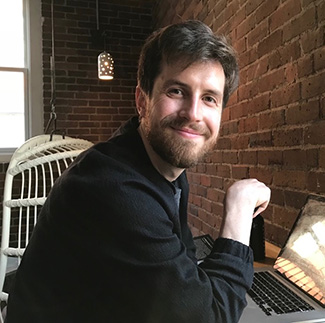 Social Sciences and Humanities Research Council
Social Sciences and Humanities Research Council
Lepage-Richer is interested in how recent breakthroughs in machine learning are transforming the nature of knowledge.
Drawing on his training in cultural studies, media theory, and science and technology studies, Lepage-Richer applies an interdisciplinary approach called critical data studies, which investigates how the nature and meaning of data are directly informed by the way they are collected, aggregated, and processed by computer systems.
“I’m invested in making specific interventions in disciplines ranging from history of computing to science and technology studies, but I also hope to make my work accessible beyond these fields,” says Lepage-Richer.
His SSHRC Fellowship will allow him to access archival material at different locations as well as complete a research internship at the Digital Democracies Lab at Simon Fraser University (British Columbia, Canada). This Lab uniquely integrates research in the humanities and data science to address the impact of digital technologies on social justice and equality.
“Combined with the archival material I will access, my experience there will provide me with a unique perspective to develop my dissertation project in a way that will bridge historical and contemporary concerns around machine learning,” says Lepage-Richer.
More from Théo Lepage-Richer
On why the award is important to him
SSHRC Doctoral Fellowships are awarded on a competitive basis by judging boards constituted of scholars across the humanities. One of the main reasons why I’m thrilled to be selected for this fellowship is that it indicates that the dissertation project I’m currently pursuing is not only relevant to a multidisciplinary audience, but also aligned with some of the main priorities of the Canadian research ecosystem.
On the application process
I took me three attempts before being selected for a SSHRC Fellowship. The whole process was quite disappointing at times, but it also provided me with a privileged opportunity to regularly revisit my project, refine its scope, and target the most relevant courses and research experiences in order to support it. Thanks to these applications, I believe that I have a clearer overview of my dissertation project than I would otherwise, and feel more confident preparing for my fields now that I have a better sense of how these different literatures support my research project. Sharing preliminary versions of my applications with peers and mentors also proved to be an effective way to receive feedback and spark key conversations at critical moments of my studies, bringing about great benefits independently of the outcome of the applications themselves.
His background
Before joining Brown University, I completed a Bachelor’s degree in Cultural and Communication Studies at McGill University and then pursued graduate studies at Goldsmiths, University of London. Working under the supervision of Professor Matthew Fuller, I wrote my Master’s thesis on the mobilization of viruses as discursive and regulatory devices in the fields of viral marketing and cyberwarfare. I left Goldsmiths with the conviction that I wanted to pursue PhD studies and, hopefully, a career in academia, but first decided to take a step back to identify the main themes of my work and the best research ecosystem to pursue my studies.
For two years, I held the position of Lead Event Programmer for an organization specialized in conferences on innovation and social impact; I selected speakers for the different events and assisted them in developing the content of their keynotes. In the context of these functions, I collaborated with many researchers, artists, and policymakers working in or on machine learning: my current project was directly inspired by my conversations with them, which granted me a privileged access to some of the main narratives and assumptions which underpin the field. I believe that my application to Brown University and, later, SSHRC’s Doctoral Fellowships was strengthen by the different perspectives I was bringing to these debates, and I am grateful for the support of the many interlocutors, collaborators, and mentors I’ve met both inside and outside academia.